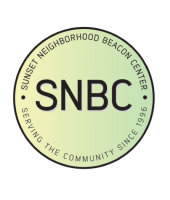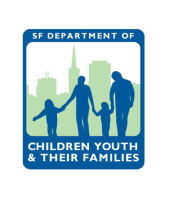Last time was all about the lefties, but scooch over, here come the moderates. Don’t worry, we aren’t taking too far of a leap, just dipping our toe into the pool of political possibilities. As a matter of fact, no one who placed as a moderate through the survey fully crossed the halfway point between left- and right-wing, but lingered close enough to it for me to mark them moderate. Once again, if you are just meeting Petite People in Popular Politics, for privacy’s sake, every person participating have been given a mock monicker, a fake name. For each interview, whether the person was a downright democrat or a radical republican they were asked a series of set standardized questions regarding their personal life, education, family, as well as political awareness, involvement, and perspectives.
I had the treat of interviewing a trio of local Bay Area boys ranging from the ages of 15 to 17. In response to the question, Do you have any religious affiliations? Greg, a 17-year-old Bangladeshi-American boy, identified himself as culturally Muslim,
Greg: I go to Mosque pretty often, it has had a huge impact on me. Being born into a Muslim family factors your morals; you know, I’ve never drank, never done stuff like that, and I’d say that’s all because of my morals.
While the other two, Tim (age 17) and Dave (age 15), both identify as religiously Agnostic. However, Tim mentioned the impact of attending a Catholic school while growing up.
Of course, the second largest morality maker in your life is your family. While both Tim and Dave indicated that their parents are primarily liberal, Tim mentioned that his dad, much like him, has a mixed mind in politics, depending on whether you’re discussing social or economic politics. However, Greg discussed the district divergences he faces with his family.
Greg: I’m a bit isolated from my family when it comes to intellectual things… they are hard Democrats, but I feel like if they knew more, for example, about social issues, they would be more Republican, but when it comes to things like immigration, more Muslim-positive things, it’s more commonly seen as a Democrat thing, but if they knew that Republicans were opposed to gay marriage or legalization of weed, they would totally be Republicans.
Depending on the particular place one goes to school, your views may be radically shifted, so I decided to find out what their early educations entailed by asking,
What was your education like? Was there any type of political emphasis?
Tim: I went to Catholic school, but they weren’t pushy about what you need to believe in; like, the prayers in the morning, you don’t have to believe in them. There’s church every Friday; go and listen, and be respectful.
Comparably, who has very similar views had a very different educational experienced. Dave discussed how going to a very liberal middle school made him more moderate, that constantly talking about politics and social justices turned him away from it.
Dave: I definitely still agree with the values, but it made me realize how toxic some of the people are. While I still agree with most of the sentiments of liberalism and left-wing ideas, I just don’t really agree with the parties or the people behind them that much.
Now, regardless of the exact school, the peers you’re surrounded by can change everything, so I was apprehensive to ask,
How often do you talk to your friends about politics? What are their views?
Dave: …we talk about it a lot, and everyone generally has the same opinions, but those opinions are not necessarily my opinions. A lot my friends are pretty conservative, but as a grade, as a whole, we are all about that liberal activist mindset, which I can appreciate, but I personally don’t subscribe to it. I think that I would be far more inclined to be an activist if I were living in a place that there wasn’t already so much going on…
Likewise, Greg mentioned how he thinks our current generation is shifting their political views and how he sees it in his friends.
Greg: They are typically liberal, sometimes it’s more of a social thing. People don’t want to be a sissy and they see progressivism as being a sissy. It’s not about being politically opposed, but a social thing, a personality thing. Most of my friends would say they are liberal. Progressive is being sissy, you know like third-wave feminism, I think a lot of guys in high school think it’s cool to be conservative now.
Seeing as these are all politically well-informed individuals, I wanted to know where exactly they got their information. Both Greg and Tim mentioned listening to a variety of podcasts and conservative talk shows, such as KSFO and The Ben Shapiro Show. Greg answered similarly to the question,
Are there any politicians or political figures you follow?
Greg: Ben Shapiro is a big guy, and Jordan Pierce is another one, he’s more psychological, but he touches on personal responsibility, freedom of speech-type stuff, as opposed to policy. I also listen to a lot of David Pacmen as a debater.
However, when prompted with the question, both Tim and Dave gave very similar answers,
Tim: I either agree or disagree in some policies, but there is no one politician that I read that I agree with on one thing and therefore follow. I think that it’s healthy for a democratic society to pick and choose with what you agree with from either side. If you only pick a politician for their personality, it’s unhealthy, and if you agree with one of their opinions, and say, “Well, then I guess I’ll agree with their other opinions as well,” that’s also unhealthy.
Dave: …I think that following one person’s political opinions are kind of silly, because politics is largely based on personal values, so unless you find someone who is exactly the same as you, it’s more a question of finding someone who is best like you, and most like your opinions.
Finally, while there are the members who hang in the middle, I was curious to see if any of them personally saw themselves as more liberal or conservative. To my dismay, each was well aware of their moderate marker. However, this was not the case when I asked them,
Are there any causes you are very passionate about?
Greg: Free speech is my big thing, I think it’s one of our most important tools, even if it’s idiotic, it’s one of the things that we can use to expose ourselves to others. We are regulated by other people like when you make a bad joke, you only know it’s bad, because no one laughs, or if you tell a bad story, you only know if it’s good through others’ response. We are regulated by our surroundings, and if what you are saying is stupid, others will tell you.
I was surprised that both Dave and Tim’s causes were largely more liberal ones. Tim mentioned being passionate about both environmental awareness and inequalities in certain ethnicities in poverty.
Dave: I am really passionate about making sure that everyone knows about climate changes, the environment, anything that talks about educating people about the state of the world, and the fact that vaccines work.
Tim: …when you look at the income inequality gap, there is definitely a gap between Whites, Asians, African-Americans, and Latinos, and that’s a huge problem. I like to think that one of my biggest views on life is that everyone is equal. I think the fact that some education and some financial opportunities aren’t being offered to some ethnicities is a problem.
Seeing as this is the centrist crowd, there was quite a variety of answers for the survey. Although one of the answer that was rather unanimous to the question, Should businesses be required to have women on their board of directors? They all disagree that this shouldn’t be a requirement.
Greg: I think if women get there without emphasis on that, I don’t like lowering standards to get somewhere, it shouldn’t be a focus, if there is a qualified woman, then why not, but not going and seeking out a woman candidate.
Another topic that came out with interesting results was whether gender identity needs to be added to anti-discrimination laws. Tim was clear that he disagrees that they need to be added.
Tim: … I feel like if it’s just something that you identify as, then some people will look for an excuse to say, “Oh, you obviously don’t support this.” There are definitely a lot of conservatives who look at the social justice warrior movement as stupid, or think there are only two genders, but I think if you truly identify as something, nothing should stop you. I put it as neutral because I think it’s all up to you, and it shouldn’t be politicized.
One of the clear differences that arose was support of the current Feminist movement. Tim had been adamant earlier about his recent-found interest in the Feminist movement and women’s rights, specifically focusing on the importance of reaching out and focusing on women in other countries. However, in the survey, Greg stated that he does not support the current Feminist movement.
Greg: I think that economic rights and all that are important, but I think that the movement has a lot of toxic things. A lot of people are really careful about the labels they choose, and there is a lot of toxicity around the Feminist movement. A whole idea of man-hating, and having to be so conscious about everything you do, especially for men, and I don’t like that. That’s my main thing, is that it’s blaming men for everything.
Overall, while each member of this centrist crowd ended up as a moderate there were many differences between them. From religious relations to personal passions, moderates are the underlying furnace of politics. Whether leaning left or right they definitely bring an intriguing story to the table…





